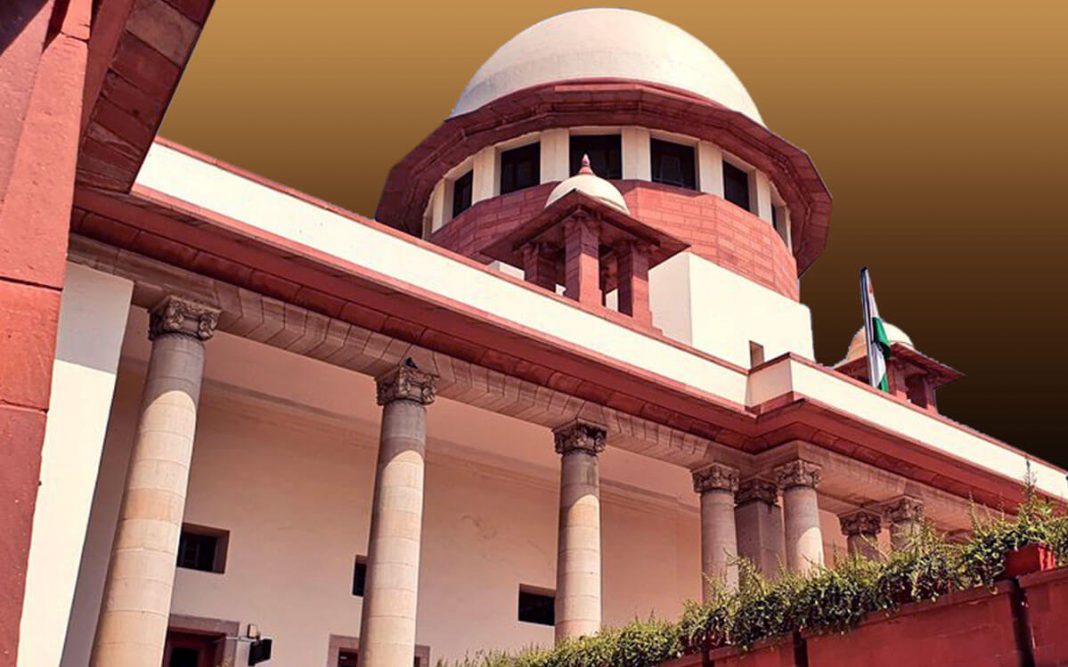The Supreme Court on Tuesday agreed to hear a petition on whether exemption granted to people in Coorg for carrying arms and ammunition without licence is against the Article 14, 15 and 21 of the Constitution or not.
The three-judge bench of Chief Justice of India N.V. Ramana, and Justices Krishna Murari and Hima Kohli, issued notice to the Union of India, State of Karnataka and others.
The plea has been filed through AOR Anupam Kishore Sinha on behalf of retired Captain Chethan Y.K. who hails from Galibeedu Village of Madikeri Taluka in Coorg district (now, officially known as Kodagu) in Karnataka, against the Karnataka High Court order dismissing his public interest litigation.
The petitioner has challenged a notification issued by the Government of India bearing no. S.O. 3872(E) dated October 29, 2019, by virtue of which the Central Government has granted an exemption to “Everyone of Coorg race (Kodava community) and every Jumma tenure-holder of Coorg” from requirement of obtaining a license to carry and possess firearms as required under the provisions of the Arms Act, 1959, till October 31, 2029.
The petitioner raises a important question of law as to whether the High Court was correct in holding that the grant of exemption to “Every one of Coorg race (Kodava community) and every Jumma tenure-holder of Coorg” from the requirement of taking a license under Section 3 of the Arms Act, 1959, for acquiring, possessing and carrying firearms does not violate Articles 14, 15, and 21 of the Constitution?
“The said notification creates a discrimination based on caste/race and ancestral land tenure, which is violative of Article 14, 15, and 21 of the Constitution of India and thus the impugned notification ought to have been struck down by the High Court”
-stated the plea.
The petitioner alleges the said notification has been issued under Section 41 of the Arms Act, 1959 and any exemption under the said Act can only be granted in public interest but no reasoning whatsoever has been given to justify the fact. He further submitted the said exemptions traces back to the British regime, which was granted by the the Britishers in pre-independence India, when they first enacted a legislation to disarm the people of India, in the aftermath of the First War of Independence, in 1857, and to exempt those people who were loyal to them.
Also Read: Petition in Supreme Court challenges delimitation of assembly seats in Jammu and Kashmir
The plea stated, “In the aftermath of the First War of Indian Independence, to avoid the recurrence of a similar armed uprising in the future, the British Government decided to disarm the people of India by enacting Act XXXI No. of 1860 (which was commonly known as the “Disarming Act”). It replaced the earlier arms Legislation, i.e. Act XXXVIII of 1857.”
“The people of Coorg, particularly the landed classes /castes, in the first war of independence, had shown loyalty to the Britishers and had fought along with the Britishers. They enjoyed confidence of the British Government to such an extent that these people were exempted from the Disarming Act, meaning that these people were not required to take a license from the local government from using arms and ammunitions”
-said the plea.
The petitioner further alleged that the High Court erred in holding that the exemption which was granted to the Kodavas was based on the reason that the Britishers considered the Kodavas as a martial race of Coorg or because they were gallant people. That the High Court without applying the test of essential/ cultural practices has held that possessing guns is an integral part of the cultural and religious practices of the Kodava community.
The High Court in its its order dated 22nd September, 2021, had held that Kodavas and Jamma tenure-holders cannot keep weapon automatically without following the provisions as contained under the Arms Act, 1959. A person has to apply for grant of exemption, a police verification is obtained, it is not granted to persons with criminal antecedents and after following a detailed and thorough procedure, the exemption certificate is granted.
Also Read: Accused in Bulli Bai app, Sulli Deals app cases get bail on humanitarian grounds
“The petitioner has not been able to establish the violation of fundamental right guaranteed under Part III of the Constitution of India nor violation of any other constitutional provisions and the Union of India is certainly competent to issue notification keeping in view Section 41 of the Arms Act, 1959”
-said the High Court of Karnataka on the basis of the judgment laid down by the Apex Court in the case of Public Services Tribunal Bar Association Vs State of Uttar Pradesh wherein the Court had laid down the parameters in which the constitutional validity of a Statute can be challenged.


